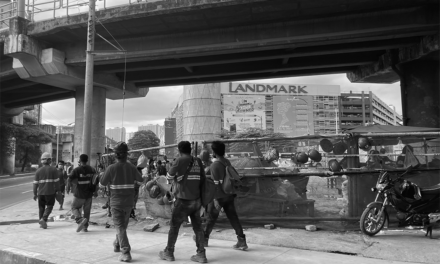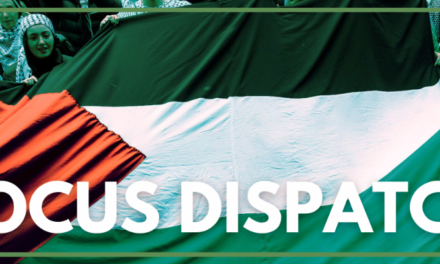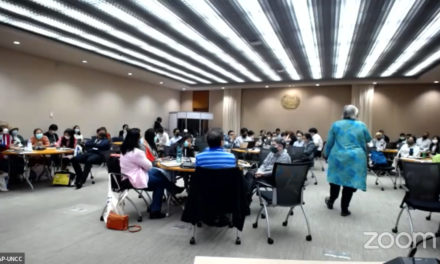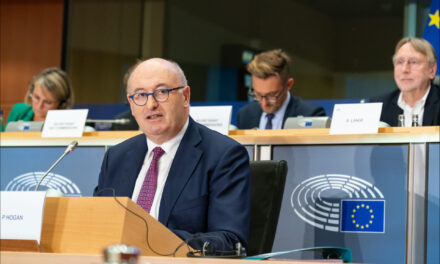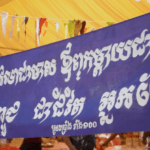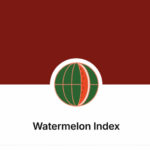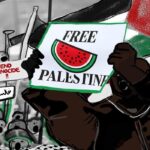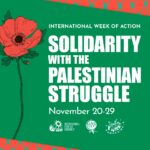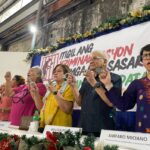2019年国民平和大行進・国際青年リレー行進にグローバル・サウスから参加するフィリピンの平和活動家のメッセージ
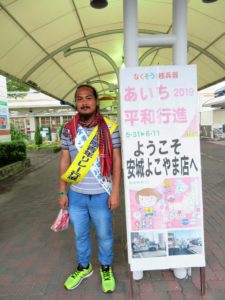 My name is Galileo de Guzman Castillo. I am from the Philippines. I work with Focus on the Global South, an activist policy think tank in Asia, with offices in Thailand, Cambodia, India, and the Philippines providing analysis and building alternatives for just social, economic, and political change. We are a collective of committed activists doing policy research, campaign work, political education, and grassroots capacity-building in order to generate critical analyses and debates on national and international policies on the issues of corporate-led globalization, neoliberalism, and militarization.
My name is Galileo de Guzman Castillo. I am from the Philippines. I work with Focus on the Global South, an activist policy think tank in Asia, with offices in Thailand, Cambodia, India, and the Philippines providing analysis and building alternatives for just social, economic, and political change. We are a collective of committed activists doing policy research, campaign work, political education, and grassroots capacity-building in order to generate critical analyses and debates on national and international policies on the issues of corporate-led globalization, neoliberalism, and militarization.
私はガリレオ・デ・グスマン・カスティーリョです。フィリピンから来ました。私はフォーカス・オン・ザ・グローバル・サウスというアジアにある活動家政策シンクタンクで働いています。タイ、カンボジア、インド、フィリピンに事務所を置き、公正な社会と経済、政治変革のための分析や代替案の構築を行っています。私たちは、企業主導のグローバリゼーション、新自由主義、軍事化に関する各国および国際的な政策について、批判的分析や議論を起こすために、政策研究、キャンペーン活動、政治的教育、草の根の能力開発に熱心に取り組んでいる活動家の集団です。
I am greatly honored and humbled to be marching together with fellow peace and nuclear abolition activists in the 2019 International Youth Relay Peace March in Japan. It is my first time to be in this beautiful country and I am grateful to be given the opportunity to be with the Japanese people and broaden my horizons and perspectives and learn from the stories and experiences of our Asian brothers and sisters, especially the Hibakusha and the Japanese youth.
日本の2019年国際青年リレー平和行進で、反核平和活動家の同志のみなさんと共に歩くことができて大変光栄です。同時に身が引き締まる思いです。今回初めてこの美しい国を訪れ、日本のみなさんと共に行動し、自分自身の視野や見解を広げ、同じアジアの兄弟姉妹のみなさん、特に被爆者の方々と日本の青年たちの証言と経験から学ぶ機会をいただいたことに感謝しています。
As Laotian community development worker Sombath Somphone said, “The youth are the agents of change and drivers of transformation.” It is imperative that we build solidarities among the youth and students and allow them to be the torchbearers and leaders of genuine change. They are the hope of the present and next generations to come.
「青年こそが変化をもたらす主体であり、変革の原動力である」と、ラオスの地域社会の開発活動家であるソムバット・ソムポーン氏が言ったように、青年たちが真の改革のたいまつを掲げるリーダーとなれるよう、青年、学生たちの間に連帯を作り出すことは必要不可欠です。彼らは現在と将来の世代にとっての希望なのです。
For a number of years, I have worked with different sectors and communities—peasants, fisherfolk, rural women, workers, indigenous peoples, students, and the youth. I have delved into research, campaign, and political education around the issues of climate and environmental justice, indigenous peoples’ rights, alternative regionalism, and peace.
私は何年もの間、農民、漁民、農村女性、労働者、先住民、学生、青年など、さまざまな分野で多くの地域社会の人々とともに活動してきました。そして気候・環境の正義、先住民族の権利、従来とは異なるオルタナティブな地域主義、平和問題分野での研究、活動、政治教育に取り組んできました。
My engagement with different peace groups, including Stop the War Coalition (StWC), Mindanao Peoples’ Peace Movement (MPPM), and No Nukes Asia Forum (NNAF) afforded my first glimpses of what it means to build peace from the ground and up, and raised my own questions on why many people continue to suffer from widespread poverty, deepening inequality, intensifying human rights violations, and persisting injustice; what is really meant by “peace”; and what would be concrete approaches to attaining just and lasting peace amidst intensifying violence and impunity.
私は戦争ストップ連合(StWC)、ミンダナオ人民平和運動(MPPM)、ノーニュークスアジアフォーラム(NNAF)を含む様々な平和団体との関わりを通じ、平和を土台から築いていく意味を初めて垣間見ることができました。なぜ多くの人が貧困の蔓延、格差の広がり、激化する人権侵害、今も続く不正義によって苦しみ続けているのか、「平和」の本当の意味とは何か、暴力と刑罰逃れが広がる中、公正で恒久的な平和を実現するための実質的なアプローチとはどういったものなのかに疑問を抱き、考えるようになりました。
Living in solidarity with different peoples’ organizations, coalitions, and movements, I learned the importance of analyzing the roots of the conflicts and understanding the context from the point of view of grassroots communities. I learned that the state of “unpeace” is the product of a complex combination of several factors in the social, economic, political, cultural, and environmental dimensions. I learned that “peace” is not only about eliminating wars and armed conflicts but also involves the struggle for social and environmental justice, equality, and sustainable development. Hence, the three thematic areas of work in my organization: Political Economy of Development, Power and Democracy, and Peoples’ Alternatives and the cross-cutting issues of Gender & Climate and Environmental Justice, all find resonance in this concept of just and lasting peace.
異なる人々の組織や連合体、運動と連帯して過ごしたことで、紛争の原因を分析すること、草の根コミュニティーの視点からその背景を理解することの重要性を学びました。「平和ではない」状態が、社会、経済、政治、文化、環境的側面など様々な要素が複雑に絡み合って作りだされていることも知りました。そして、「平和」とは、ただ単に戦争や武力紛争をなくすことだけではなく、社会的、環境的な正義、平等、持続可能な開発を求める努力と深く結びついたものであることを学びました。このため、私が組織の中でテーマとしている3つの分野は、開発・権力・民主主義の政治経済学、人民による代替策、そしてジェンダーと気候、環境正義の分野を横断する諸問題です。それらすべてが、公正で恒久的な平和というコンセプトに共鳴しています。
Our goals are to 1) dismantle oppressive economic and political structures and institutions; 2) create liberating structures and institutions; and 3) promote demilitarization and peace-building. These three goals are brought together in the paradigm of de-globalization, which is about shifting the global economy away from a focus on the needs of transnational corporations and toward a focus on the needs of the people, and strengthening the capacities of local and national economies.
私たちの目標は、1.抑圧的な経済、政治構造、制度の解体、2.解放的な構造と制度の構築、3.非軍事化と平和構築の促進です。これらの3つの目標は、脱グローバリゼーション、つまり多国籍企業のニーズにフォーカスを当てたグローバル経済を人々のニーズにフォーカスしたものに変えること、そして地域と各国経済の能力を強化するという枠組みの中で結びついています。
I am privileged to learn from the Hibakushas and carry forward their passion, philosophy, and vision of a peaceful, just, and sustainable world. It is our duty to contribute to the strengthening of the peoples’ resistance and grassroots solidarities from the ground—for their struggles are our struggles, too.
被爆者の方々から学び、彼らの情熱、哲学、そして平和で公正で持続可能な世界への展望を受け継いで進むことができて光栄です。私たちの責務は、人々のレジスタンスと草の根の連帯をより確固なものにしていくことです。彼らの闘いは私たち自身の闘いです。
In the Philippines, we are experiencing a tumultuous upheaval and a critical period in our history. We are facing an authoritarian, militaristic, and repressive regime. Unresolved conflicts and historical grievances provided the entry points for fundamentalism and extremism to take over.
今フィリピンの私たちは、混乱と激動を経験しており、歴史上非常に重大な時期にあります。私たちは独裁的で軍事主義的、抑圧的な政権に直面しています。未解決の紛争と歴史の中で蓄積された不満が入口となって、原理主義と過激主義が拡大しつつあるのです。
The overall economic policy of the administration remains beholden to market, corporate, and neoliberal forces and interests. The environment and the commons are under threat of being obliterated by state and corporate extractivism and massive infrastructure investments under the government’s Build Build Build program. To fuel the growing economy of the country, there are plans to revive the mothballed Bataan Nuclear Power Plant (BNPP) and another 13 potential sites were also identified for future nuclear energy development across the Philippines.
政府の経済政策は依然として全てが、市場と企業、新自由主義勢力と利益に依存しています。環境と共有財は、国家と企業に利益を搾り取られ、無駄な大建設計画のもとでの巨大インフラへの投資によって、消滅寸前の危機にあります。成長するこの国の経済を勢いづけるために、放置されていたバターン原発(BNPP)を復活させようという計画が持ち上がり、将来の原子力エネルギー開発のためにフィリピン全土に13カ所の候補地が特定されています。
It is as relevant as ever to be part of the growing movement of peace-loving peoples opposing all forms of war and nuclear weapons.
あらゆる戦争と核兵器に反対する、平和を愛する人たちのこの高まりつつある運動の一翼を担うことが、今ほど重要な時はありません。
In the present critical conjuncture, this is the time for us to respond to the challenges of “unpeace” and to struggle and resist oppressive structures, institutions, and powers.
現在の危機的な局面において、今こそ私たちがこの平和を脅かす課題に取り組み、抑圧的な構造や制度、権力と闘い、抵抗する時です。
As Brazilian educator and philosopher Paulo Freire said in his book, Pedagogy of the Oppressed, “The dominant elites consider the remedy to be more domination and repression, carried out in the name of freedom, order, and social peace (that is, the peace of the elites).”
ブラジルの教育・哲学者であるパウロ・フレーレは彼の著書「被抑圧者の教育」の中で「支配者のエリートたちは、自由、秩序、社会的平和(すなわち、エリートたちにとっての平和)という言葉を使って、支配と抑圧を強化する手段を考える」と述べています。
There can be no peace with oppression, repression, and suppression. There can be no peace with the domination of the elites and tyranny of warmongers. There can be no peace without freedom, and no freedom without peace.
抑圧、弾圧があるところに平和などあり得ません。エリート支配と戦争主義者による圧制があるところに平和など存在しません。自由のない平和は存在せず、平和のない自由もあり得ません。
It is therefore imperative that we continually build and strengthen grassroots peoples’ solidarities and collectively weave the tapestry of just and lasting peace.
だからこそ、私たちは草の根の人々の連帯を築き、強め、公正で恒久的な平和のタペストリーを一緒に織り続けていかなければなりません。
Our participation in this Peace March is our expression of solidarity with the Hibakusha and our contribution to the collective call for justice for the Hibakushas, with our strong determination to support the international campaign for the elimination of nuclear weapons.
私たちの平和行進への参加は、被爆者の方々への私たちの連帯の表明であり、被爆者の正義を求める呼びかけへの私たちの貢献です。そして核兵器廃絶にむけた国際キャンペーンを支持する私たちの強い決意の表明です。
I want to end this message with the lyrics from a song by the Filipino reggae band, Tropical Depression entitled, Kapayapaan (“Peace”):
最後に、フィリピンのレゲエバンド「トロピカル・ディプレッション」の「Kapayapaan(平和)」という歌の歌詞をご紹介します。
Halina’t sumayaw sa ilalim ng araw
(Come and let us dance under the sun)
ここへきて、太陽の下で踊ろう
Maghawak-hawak ng kamay
(Let’s hold hands)
手をつないで
Isigaw nang sabay-sabay
(Together let us shout)
一緒にシャウトするんだ
Kapayapaan, kapayapaan, kapayapaan, kapayapaan
(Peace, peace, peace, peace)
ピース、ピース、ピース、ピース
Kulay man nati’y magkaiba
(Our colors may differ)
肌の色が違っても
Mundo natin ay iisa
(But we have one world)
私たちの世界は一つ
Lupang uhaw sa pag-ibig
(A land thirsty for love)
その世界は愛に飢えていて
Naghihintay sa halik ng langit
(Waiting for heaven’s kiss)
天国のキスを待っている
Mundo nating hati-hati
(Our divided world)
この分断された世界を
Pag-isahin nating muli
(Let us reunite it)
私たちの手でまた一つにしよう

